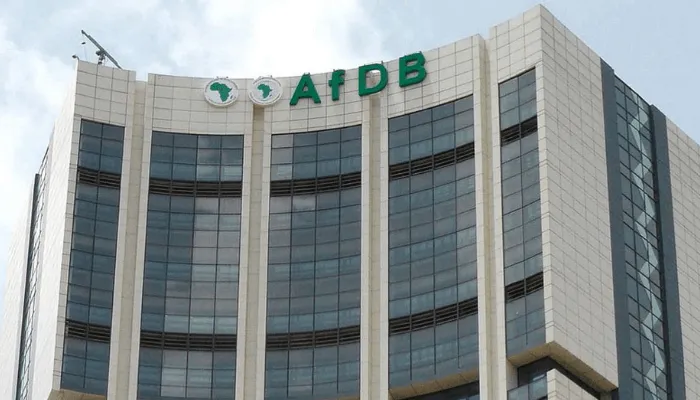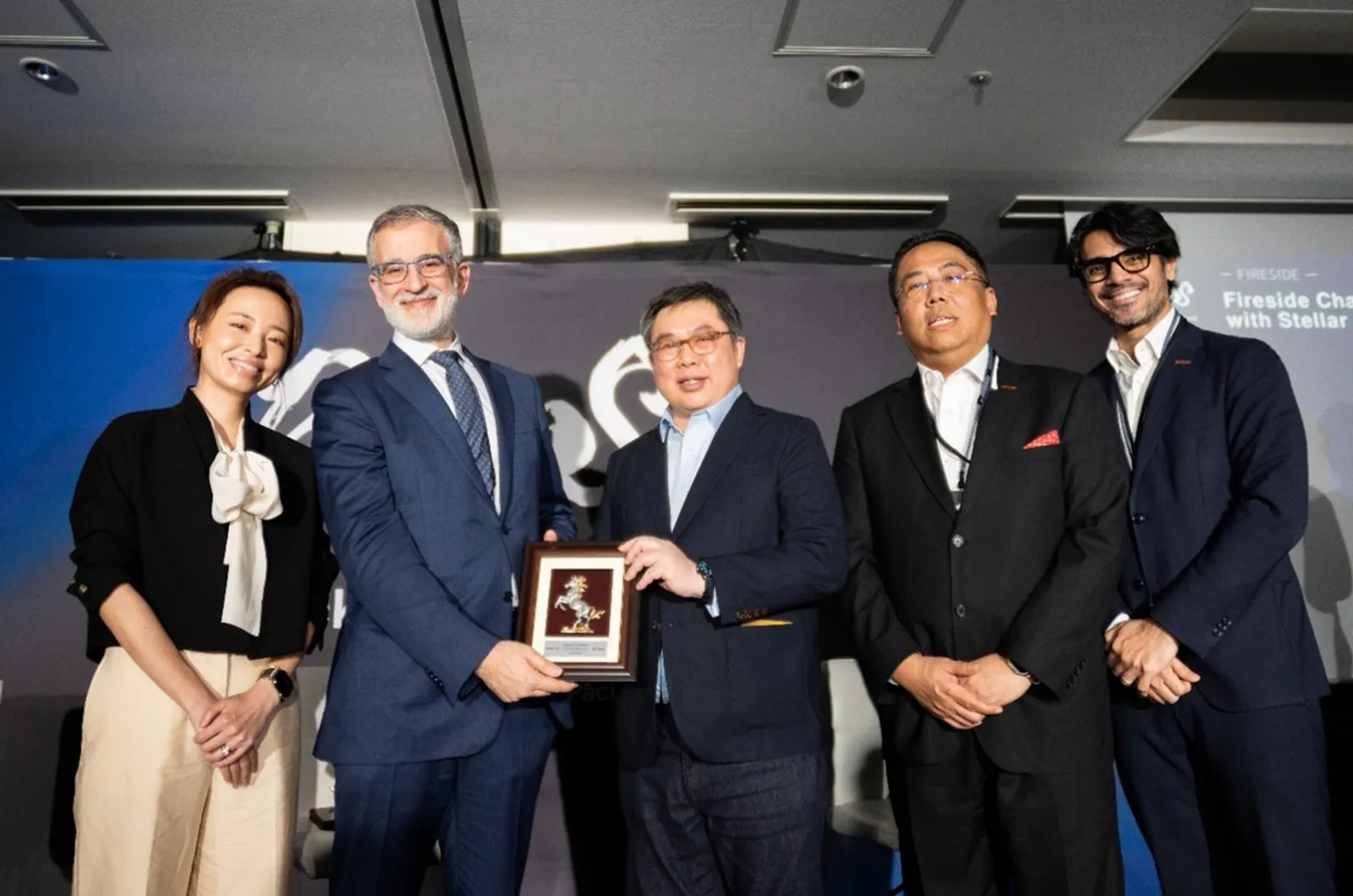In a comprehensive assessment of Nigeria’s economic trajectory, the African Development Bank (AfDB) has released its 2025 Nigeria Country Focus Report (CFR), offering a nuanced outlook on the nation’s Gross Domestic Product (GDP) growth. While acknowledging the bold and necessary economic reforms undertaken by the Nigerian government, the report projects a moderation in real GDP growth to 3.2 percent in 2025 and 3.1 percent in 2026, a slight dip from the 3.4 percent estimated for 2024. This anticipated slowdown is primarily attributed to a combination of persistent structural bottlenecks within the Nigerian economy and the prevailing heightened global uncertainty, underscoring the complex challenges that Africa’s largest economy continues to navigate.
Titled “Making Nigeria’s Capital Work Better for Its Development,” the 2025 Nigeria CFR serves as a critical analytical tool, mirroring the broader African Economic Outlook but tailored specifically to Nigeria’s unique context and national priorities. It goes beyond mere economic indicators, delving into a holistic examination of how Nigeria mobilizes, manages, and invests all forms of capital – fiscal, financial, human, natural, and business – as a prerequisite for accelerating structural transformation and fostering truly inclusive growth.
Navigating the Headwinds: Structural Bottlenecks and Global Uncertainty
The AfDB’s projection of moderated growth comes with a clear diagnostic of the underlying factors. The report highlights that while Nigeria possesses immense potential, its economic progress is often hindered by deep-seated issues and external shocks.
Persistent Structural Bottlenecks
Structural bottlenecks refer to fundamental impediments within an economy that limit its potential for sustained, high-level growth. In Nigeria’s case, these include:
- Inadequate Infrastructure: A pervasive challenge, particularly in critical areas like power supply and transportation. Nigeria faces a significant power deficit, with frequent outages and reliance on expensive alternative power sources, which drastically increases operating costs for businesses and reduces productivity. The transportation network, including roads, railways, and ports, often suffers from congestion and dilapidation, hindering the efficient movement of goods and people and increasing logistics costs. This infrastructure deficit limits industrial capacity, discourages investment, and constrains overall economic activity.
- Governance Constraints and Bureaucracy: Issues such as fragmented oversight, overlapping mandates, and limited institutional coordination within government agencies contribute to inefficiency and can create an unpredictable operating environment for businesses. This bureaucratic friction often leads to delays in approvals, permits, and other essential processes, increasing the cost of doing business in Nigeria. Moreover, concerns about corruption can erode public trust and deter foreign and domestic investment.
- Insecurity: Persistent security challenges in various parts of the country, including banditry, kidnapping, and insurgency, disrupt agricultural activities, displace communities, and increase risks for businesses. This not only impacts food security and rural livelihoods but also deters investment in affected regions and diverts government resources towards security operations.
- Over-reliance on Oil: Despite efforts to diversify, Nigeria’s economy remains heavily dependent on oil revenues. Volatility in global oil prices directly impacts government earnings, foreign exchange reserves, and overall economic stability. This dependence makes the economy vulnerable to external shocks in the energy market, hindering the development of other promising sectors.
- High Cost of Doing Business: A combination of high energy costs, inefficient logistics, regulatory complexities, and security concerns contributes to a high cost of doing business, making Nigerian products less competitive internationally and discouraging new ventures.
Heightened Global Uncertainty
Beyond domestic issues, Nigeria’s economic outlook is also shaped by a turbulent global environment:
- Global Inflationary Pressures: Supply chain disruptions, geopolitical conflicts (e.g., in Ukraine, Middle East), and strong demand in some economies have fueled global inflation. This translates into higher import costs for Nigeria, particularly for essential goods and raw materials, exacerbating domestic price increases and impacting consumer purchasing power.
- Rising Global Interest Rates: Major central banks globally have raised interest rates to combat inflation. This makes borrowing more expensive for emerging markets like Nigeria, increasing debt servicing costs and making it harder to attract foreign capital for development projects.
- Geopolitical Tensions: Ongoing geopolitical conflicts create instability in global trade, energy markets, and investment flows. These tensions can lead to commodity price volatility and reduced appetite for risk in emerging markets, impacting Nigeria’s ability to attract and retain foreign investment.
- Impact on Commodity Prices: While Nigeria benefits from higher oil prices, sustained global uncertainty can also lead to price volatility, making revenue forecasting difficult and complicating long-term economic planning.
“Despite this momentum [from reforms], the report projects that real GDP growth will moderate to 3.2 percent in 2025 and 3.1 percent in 2026, down from 3.4 percent in 2024, largely due to persistent structural bottlenecks and heightened global uncertainty,” the AfDB reiterated, emphasizing the deep-seated nature of these challenges.
The Call for Strategic Capital Mobilisation: A Multi-Faceted Approach
A central theme of the AfDB’s 2025 Country Focus Report is the urgent need for Nigeria to adopt a more strategic and coordinated approach to capital mobilization. Dr. Abdul Kamara, Director General for Nigeria at the African Development Bank, underscored this point, stating, “This report is both timely and practical. Nigeria is demonstrating bold leadership through difficult but necessary reforms. Its capital is more than financial; it includes human, natural, and institutional assets. What this report shows is the need for integrated strategies that make every form of capital work together to drive inclusive and sustainable transformation.”
The report meticulously breaks down the different forms of capital that Nigeria must effectively leverage:
1. Fiscal Capital: Enhancing Domestic Resource Mobilisation
The report pinpoints an urgent need to bridge Nigeria’s annual development financing gap, estimated at a staggering USD 31.5 billion. This gap represents the difference between available resources and the funding required to achieve national development goals. Closing this requires robust domestic resource mobilization (DRM).
- Tax Reforms and Non-Oil Revenue Expansion: While the Nigerian government has initiated tax reforms and efforts to expand non-oil revenue sources, and these are beginning to show results, significant challenges remain.
- Large Informal Sector and Low Tax Compliance: A substantial portion of Nigeria’s economy operates within the informal sector, which is largely outside the tax net, limiting revenue collection. Furthermore, tax compliance across all sectors remains low, contributing to Nigeria’s tax-to-GDP ratio being among the lowest in the region. The Federal Inland Revenue Service (FIRS), through its Head of Fiscal and Tax Reforms Implementation Division, Mr. Olufemi Olarinde, acknowledged the report’s relevance to Nigeria’s fiscal trajectory, affirming the ongoing work and challenges.
- Recommendations: To meet development goals, the CFR recommends a multi-pronged approach:
- Broadening the tax base: Bringing more economic activities and individuals into the tax net.
- Improving compliance: Enhancing tax administration, leveraging technology, and strengthening enforcement mechanisms.
- Reducing tax expenditures: Reviewing and potentially eliminating tax waivers, incentives, and exemptions that disproportionately benefit certain entities without clear developmental returns.
- Investing in Institutional Capacity: Strengthening the capabilities of revenue-generating agencies (like FIRS) through technology, training, and improved governance to ensure efficiency and transparency.
- Efficient and Impactful Public Spending: Ensuring that collected revenues are spent wisely on productive investments that yield high social and economic returns, such as infrastructure, education, and healthcare.
2. Financial Capital: Deepening Financial Markets and Attracting Investment
Beyond fiscal revenue, the report also emphasizes the importance of a robust financial sector that can effectively intermediate savings and investments.
- Access to Credit: While financial institutions exist, access to affordable credit, particularly for Micro, Small, and Medium-sized Enterprises (MSMEs), remains a significant challenge. MSMEs are vital for job creation and economic diversification but often struggle to secure financing due to stringent collateral requirements, high interest rates, and perceived risk.
- Attracting Foreign Direct Investment (FDI): Despite reforms, Nigeria needs to attract more stable and productive FDI, particularly into non-oil sectors. This requires improving the ease of doing business, enhancing regulatory predictability, ensuring policy consistency, and strengthening legal frameworks for investment protection.
- Capital Market Development: Deepening the domestic capital market (e.g., stock exchange, bond market) can provide alternative long-term financing options for businesses and government projects, reducing reliance on volatile short-term borrowing.
3. Human Capital: Investing in People
A nation’s greatest asset is its people. The report implicitly highlights the need to unleash Nigeria’s vast human potential.
- Education and Skills Development: Investing in quality education at all levels, from basic to tertiary, and focusing on vocational and technical skills relevant to emerging industries is paramount. Bridging the skills gap ensures a productive workforce capable of driving innovation and economic transformation.
- Healthcare: A healthy population is a productive one. Improving access to quality healthcare services, sanitation, and nutrition contributes to higher labor productivity and overall well-being.
- Youth Employment: With a large and rapidly growing youth population, creating sufficient, meaningful employment opportunities is critical for harnessing the demographic dividend and preventing social unrest.
4. Natural Capital: Sustainable Management of Resources
Nigeria is richly endowed with natural resources, not just oil.
- Diversification from Oil: Beyond crude oil, Nigeria possesses vast reserves of natural gas, solid minerals (e.g., tantalite, gold, limestone), and extensive arable land. The report implicitly advocates for sustainable exploration and utilization of these resources to diversify the economy and reduce dependence on volatile oil markets.
- Agricultural Potential: Nigeria has immense agricultural potential, capable of ensuring food security and generating export revenues. Investing in modern farming techniques, value chain development, and climate-resilient agriculture can unlock this capital.
- Environmental Sustainability: Ensuring that the exploitation of natural resources is done sustainably, minimizing environmental degradation and impact on communities, is crucial for long-term development.
5. Business Capital: Fostering Private Sector Development
A vibrant private sector is the engine of growth.
- Ease of Doing Business: Simplifying regulations, reducing bureaucratic hurdles, and ensuring the timely resolution of commercial disputes are critical for fostering entrepreneurship and attracting investment.
- Support for MSMEs: Providing targeted support, including access to finance, training, and market linkages, for MSMEs can unlock their immense potential for job creation and innovation.
- Public-Private Partnerships (PPPs): Leveraging private sector expertise and capital for infrastructure development and service delivery can accelerate progress and reduce the burden on public finances.
Nigeria’s Bold Reforms: A Commitment to Long-Term Stability
The AfDB report’s launch comes amidst some of the most significant and bold economic reforms undertaken by the Nigerian government in recent history. These measures, though difficult and with immediate social costs, reflect a commitment to achieving long-term macroeconomic stability and fostering self-reliant development.
- Removal of Fuel Subsidies: The long-standing fuel subsidy, a massive fiscal burden costing billions of dollars annually, was removed. While this decision has led to a sharp increase in fuel prices and transport costs, sparking public outcry and contributing to inflationary pressures, it frees up substantial government funds that can be redirected to critical sectors like infrastructure, education, and healthcare. It also aims to eliminate distortions in the market and reduce smuggling.
- Unification of Exchange Rates: The government moved to unify Nigeria’s multiple exchange rate windows into a single, market-reflective rate. This aims to improve transparency, attract foreign exchange inflows, and build investor confidence by providing a more predictable and stable currency regime. However, in the short term, it has led to a depreciation of the Naira, increasing the cost of imports and further fueling inflation.
- Tax Reforms: A renewed push for comprehensive tax reforms aims to increase the government’s non-oil revenue. This includes efforts to digitize tax collection, broaden the tax base, and improve compliance, as previously mentioned.
These reforms, while commendable in their ambition to reset Nigeria’s economic foundations, have predictably led to immediate challenges such as surging inflation and a higher cost of living for ordinary citizens. The government is attempting to mitigate these impacts through various palliative measures. However, the report emphasizes that sustained implementation and careful management are crucial for these reforms to yield their intended long-term benefits of a more resilient and diversified economy.
Addressing the Development Financing Gap and Governance Imperatives
The USD 31.5 billion annual development financing gap is a staggering figure that underscores the scale of the challenge Nigeria faces in achieving its development aspirations. This gap necessitates not just increased revenue but also more efficient and impactful spending. The CFR’s recommendations for broadening the tax base, improving compliance, reducing tax expenditures, and investing in the institutional capacity of revenue-generating agencies are all aimed at maximizing the quantum of fiscal capital available for development.
However, the report correctly identifies governance constraints as fundamental obstacles to effective capital mobilization. Dr. Jacob Oduor, Lead Economist for West Africa at the African Development Bank, highlighted that while policy tools like market-based exchange rate systems can bolster Nigeria’s economic resilience, they are effective “only when backed by credible institutions and disciplined macroeconomic management.” This speaks to the need for:
- Stronger Institutions: Building independent, efficient, and accountable public institutions that can implement policies effectively and transparently.
- Reduced Fragmentation and Overlapping Mandates: Streamlining government structures to eliminate redundancies, improve coordination, and clarify responsibilities, thereby enhancing efficiency and accountability.
- Enhanced Public Trust: Combating corruption, promoting transparency, and ensuring accountability in public finance management are essential for rebuilding public trust, which is critical for voluntary tax compliance and encouraging investment. When citizens trust that their taxes are well spent and that the government is operating fairly, they are more likely to comply.
Reinforcing this, Peter Engbo Rasmussen, Country Economist for Nigeria, noted: “Nigeria’s commitment to fiscal reform is crucial to building a resilient economy. The CFR reveals that strengthening non-oil revenue and improving public financial management will not only reduce reliance on volatile oil markets but also provide the fiscal space needed to invest in people and infrastructure.” This emphasis on non-oil revenue diversification is key to insulating the economy from global oil price shocks and creating a stable, predictable funding source for long-term development.
A Productivity-Led Deflation Strategy: Private Sector Perspectives
The AfDB report’s findings resonate strongly with perspectives from the private sector. Dr. Joseph Ogebe, Head of Research and Development at the Nigeria Economic Summit Group (NESG), a prominent private sector-led think-tank, echoed the report’s attention to inflationary pressure and the critical role of productivity.
“The CFR’s findings resonate with our position at NESG. Price stability remains a pressing concern, with inflation disproportionately affecting micro and medium-sized businesses,” Dr. Ogebe stated. He highlighted that inflation disproportionately impacts MSMEs because they often have less access to financing, thinner profit margins, and less capacity to absorb rising input costs or pass them on to consumers. High inflation erodes their working capital, stifles expansion, and can lead to business closures, hindering job creation.
The NESG continues to advocate for a “productivity-led deflation strategy” and recommends a “growth-with-depth approach that prioritises sustainable economic expansion over reliance on borrowing.” This concept suggests:
- Productivity-led Deflation: Instead of combating inflation solely through demand-side measures like interest rate hikes (which can stifle growth), the focus should be on increasing the supply of goods and services through enhanced productivity. This can involve improving infrastructure, fostering innovation, enhancing human capital skills, and creating a more efficient business environment. When more goods and services are produced efficiently, prices can naturally stabilize or even decline without harming economic activity.
- Growth-with-Depth Approach: This contrasts with growth driven primarily by debt or consumption bubbles. “Growth with depth” implies sustainable economic expansion that is inclusive, creates high-quality jobs, builds strong domestic industries, and leverages Nigeria’s diverse capital assets rather than relying on external borrowing, which can lead to debt sustainability issues. It’s about building a robust, resilient economy from within.
These private sector insights underscore the shared understanding between the government, development partners, and the private sector regarding the need for fundamental, structural changes to achieve sustainable and inclusive growth in Nigeria.
The Significance of the Country Focus Report (CFR)
The 2025 Nigeria Country Focus Report is not just an academic exercise; it is an integral part of the AfDB’s annual analytical series, designed to be a practical tool for policymakers. By mirroring the broader African Economic Outlook at a country level, these reports offer:
- Localized, Evidence-Based Analysis: They provide in-depth insights specifically tailored to the economic realities and challenges of individual Regional Member Countries (RMCs) like Nigeria, ensuring that policy recommendations are context-specific and actionable.
- Support for Reform Implementation: The reports serve as guides for governments embarking on difficult reform agendas, offering data-driven insights into potential impacts and areas for prioritization.
- Policy Dialogue: They provide a solid analytical foundation for robust policy discussions among government officials, private sector stakeholders, civil society, and international development partners.
- Development Planning: The findings and recommendations feed directly into national development planning processes, helping to shape strategies and allocate resources more effectively to achieve sustainable development goals.
In essence, the CFR acts as a compass, helping Nigeria navigate its complex economic landscape by providing clear, data-driven directions for optimizing its capital and ensuring that its ongoing reforms translate into tangible and inclusive development outcomes for all its citizens.
Conclusion: Nigeria’s Path to Sustainable Prosperity
Nigeria stands at a critical juncture in its economic journey. The AfDB’s 2025 Country Focus Report provides a candid yet constructive assessment, acknowledging the immediate challenges of moderated GDP growth stemming from structural bottlenecks and global uncertainties, while simultaneously recognizing the bold and necessary reforms currently underway.
The call for a “strategic and coordinated approach to capital mobilization” is not merely about financial injections but about unlocking the full potential of Nigeria’s diverse assets: its fiscal capacity, its financial markets, its vibrant human population, its abundant natural resources, and its entrepreneurial private sector. The imperative is to move beyond short-term fixes and focus on deep, structural changes that foster productivity, enhance governance, and build resilience.
The government’s commitment to reforms, despite their initial painful impacts, signifies a long-term vision for macroeconomic stability and self-reliance. However, the success of these reforms will hinge on consistent implementation, effective public financial management, and a renewed focus on improving the ease of doing business to truly attract and retain investment.
As Nigeria strives to bridge its significant development financing gap and overcome governance constraints, the insights from the AfDB report, coupled with the proactive engagement of entities like the FIRS and NESG, provide a roadmap. The ultimate goal is to transform the nation’s economic landscape from one dependent on volatile oil revenues to a diversified, productivity-led economy that delivers sustainable and inclusive growth, creating a prosperous future for all Nigerians. The coming years will be crucial in determining how effectively Nigeria harnesses its vast capital to realize its full development potential.
Ready to take your career to the next level? Join our dynamic courses: ACCA, HESI A2, ATI TEAS 7 , HESI EXIT , NCLEX – RN and NCLEX – PN, Financial Literacy!🌟 Dive into a world of opportunities and empower yourself for success. Explore more at Serrari Ed and start your exciting journey today! ✨
photo source: Google
By: Montel Kamau
Serrari Financial Analyst
30th June, 2025
Article, Financial and News Disclaimer
The Value of a Financial Advisor
While this article offers valuable insights, it is essential to recognize that personal finance can be highly complex and unique to each individual. A financial advisor provides professional expertise and personalized guidance to help you make well-informed decisions tailored to your specific circumstances and goals.
Beyond offering knowledge, a financial advisor serves as a trusted partner to help you stay disciplined, avoid common pitfalls, and remain focused on your long-term objectives. Their perspective and experience can complement your own efforts, enhancing your financial well-being and ensuring a more confident approach to managing your finances.
Disclaimer: This article is for informational purposes only and does not constitute financial advice. Readers are encouraged to consult a licensed financial advisor to obtain guidance specific to their financial situation.
Article and News Disclaimer
The information provided on www.serrarigroup.com is for general informational purposes only. While we strive to keep the information up to date and accurate, we make no representations or warranties of any kind, express or implied, about the completeness, accuracy, reliability, suitability, or availability with respect to the website or the information, products, services, or related graphics contained on the website for any purpose. Any reliance you place on such information is therefore strictly at your own risk.
www.serrarigroup.com is not responsible for any errors or omissions, or for the results obtained from the use of this information. All information on the website is provided on an as-is basis, with no guarantee of completeness, accuracy, timeliness, or of the results obtained from the use of this information, and without warranty of any kind, express or implied, including but not limited to warranties of performance, merchantability, and fitness for a particular purpose.
In no event will www.serrarigroup.com be liable to you or anyone else for any decision made or action taken in reliance on the information provided on the website or for any consequential, special, or similar damages, even if advised of the possibility of such damages.
The articles, news, and information presented on www.serrarigroup.com reflect the opinions of the respective authors and contributors and do not necessarily represent the views of the website or its management. Any views or opinions expressed are solely those of the individual authors and do not represent the website's views or opinions as a whole.
The content on www.serrarigroup.com may include links to external websites, which are provided for convenience and informational purposes only. We have no control over the nature, content, and availability of those sites. The inclusion of any links does not necessarily imply a recommendation or endorsement of the views expressed within them.
Every effort is made to keep the website up and running smoothly. However, www.serrarigroup.com takes no responsibility for, and will not be liable for, the website being temporarily unavailable due to technical issues beyond our control.
Please note that laws, regulations, and information can change rapidly, and we advise you to conduct further research and seek professional advice when necessary.
By using www.serrarigroup.com, you agree to this disclaimer and its terms. If you do not agree with this disclaimer, please do not use the website.
www.serrarigroup.com, reserves the right to update, modify, or remove any part of this disclaimer without prior notice. It is your responsibility to review this disclaimer periodically for changes.
Serrari Group 2025
















